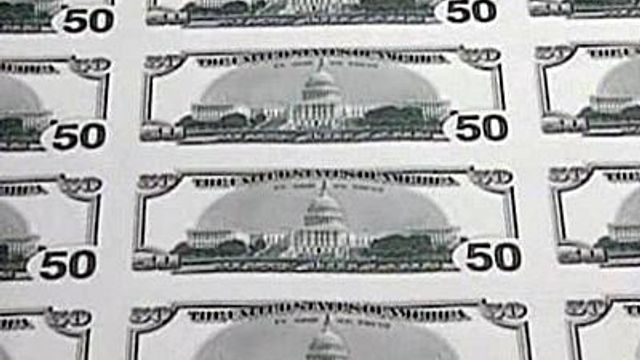Local Politics
Obama stimulus plan could mean $16B for N.C.
North Carolina could receive $1.9 billion to help with the state's budget shortfall.
Posted — UpdatedRALEIGH, N.C. — North Carolina could receive at least $16 billion from President Obama's $819 billion economic stimulus package, including $1.9 billion to patch the state budget deficit over the next two years.
The bill, approved Wednesday by the U.S. House of Representatives, is on its way to the U.S. Senate, and if approved, could be signed into law by mid-February.
Federal officials believe the plan will create or save more than 3 million jobs over the next few years, including 132,000 in North Carolina.
State Senate Majority Leader Tony Rand, D-Cumberland, says that although it is not completely clear where that money could be used, every bit will still help.
"Our short-term woes tend to overpower everything else right now, but this will be a great thing for the people of North Carolina, I think," he said. "We hope Congress will help provide us with the things we need to make sure we don't do lasting damage."
But Phil Berger, R-Guilford, state Senate minority leader, said he believes that while the plan could be beneficial in the short-term by getting people to work, it could generate more problems in the long-term.
"The state government is spending too much money, and I think if what you see is a short-term fix of that amount of money for a two-year period, all you're doing is paying state government and bailing the state government out for bad behavior in the past," Berger said.
According to the Office of the U.S. Speaker of the House, the bill also provides North Carolina with $802 million for transportation and infrastructure, $2.6 billion to help the state cover Medicaid costs and $551 million for education needs.
It also extends unemployment benefits, increases food stamps and provides money for the arts.
"What the federal government has given us so far is a package that was supposed to stimulate the banks. I don't think that worked," Berger said. "We now seem to have a package, they say, will stimulate the economy. It looks to me like all it will do is stimulate more government spending."
Obama's plan also calls for a $500 tax break for single workers and $1,000 for couples, including those who don't earn enough to owe federal income taxes. There are also tax breaks for businesses making investments in equipment and renewable energy production.
The bill passed the U.S. House along party lines with every Republican and 11 Democrats voting against it.
Rep. Heath Shuler, of North Carolina's 11th Congressional District, was the state's only Democratic representative to vote against it.
"In my opinion, the legislation before the House contained too much additional spending in areas that will not offer immediate economic stimulus," he said in a statement Wednesday.
"As our nation faces an historic budget deficit and a national debt approaching $11 trillion, I cannot in good conscience borrow and spend $825 billion, further burdening future generations of Americans.”
Democratic Rep. David Price, of the 4th District, disagrees, saying it will only benefit them.
"Let me tell you how to really pass a debt to our future generations, he said. "Let this thing continue. Do nothing. See what then happens to the revenue stream. See what then happens to the people's ability to participate in this economy."
The Senate's version of the stimulus is already picking up more Republican support, and it's shaping up to be more expensive.
Lawmakers there could start work on the bill as soon as Monday. Obama has signaled that the house plan is not perfect, and he's willing to accept changes to it.
In a written statement Thursday, he urged lawmakers not to "drag our feet or allow the same partisan differences to get in our way."
"We're going to continue to reach out to them," White House Press Secretary Robert Gibbs said.
"The president will do that to ensure that parties can work together, and we can continue to change the way Washington works, so we can put Americans back to work,"
• Credits
Copyright 2024 by Capitol Broadcasting Company. All rights reserved. This material may not be published, broadcast, rewritten or redistributed.





